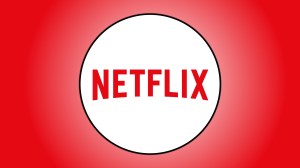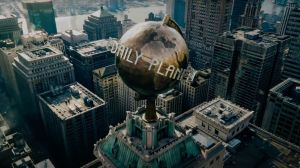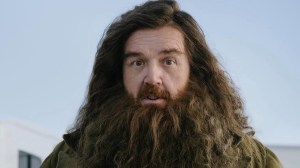
One of Adam Frank’s job titles is “professor of astrophysics” at University of Rochester. But Marvel fans will soon know him for another title, if they don’t already: science consultant. Frank, who studies science and spirituality, was the science consultant on Doctor Strange, lending his expertise and knowledge to one of the Marvel Cinematic Universe’s most ambitious stories.
Videos by ComicBook.com
“There’s always a huge amount behind the story that makes it good. It’s never going to be good unless there’s a whole universe you don’t see that is sort of peeking its way through the cracks,” Frank told ComicBook.Com when we sat down with him for an interview. So how did Frank come on board in the first place?”
“The background story of this is that in 2007, I wrote a story about science and religion,” Frank explained, going on to share that’s how he met Scott Derrikson, Strange’s director. “Scott is someone who is religious but has a great respect for science, and I’m someone who is an atheist, but have a great interest in spiritual endeavors. And so we ended up having a whole range of really interesting conversations about science and religion, the knowledge and understanding of the world from these different domains, where they overlap and where they don’t, and a lot of discussion about on about what mastery means.”
When Derrikson was tapped to helm the 14th film in the Marvel Cinematic Universe and the first one to take on the concepts of philosophy and spirituality, he got back in touch with the one person he knew that could help him untangle the more important aspects of the Sorcerer Supreme’s story. And Frank, who emphasizes he’s “always been a fan of how Marvel represented science,” was more than happy to participate.
“We talked about, how do you bring a character whose powers are essentially mystical into this universe that has great respect for science?” said Frank. “A lot of our conversations were about this issue. How do you represent the magic? And you could do something like saying, oh, it’s about neurochemical transmitters or something, but I didn’t want to go that route.”
The route Frank did want to go was philosophy and the connection between the mind and the body. “This idea that perhaps we’re going to have to add something else to the universe to understand the relationship between mind and matter, to me, was a great way to go in,” explained Frank. “The scene where The Ancient One (Tilda Swinton) is sort of pointing out how limited Doctor Strange’s understanding of the world is, we had a lot of conversations of what that would sound like. So for me, what was important was that the philosophy gets represented well.”
Of course, it wasn’t just the mind versus matter idea Frank had to grapple with. Doctor Strange adds an entirely new dimension (no pun intended) to the cinematic universe with the introduction of the multiverse. Frank had to find a way to keep the science fiction aspects of the multiverse believable, but also make sure there was a fair amount of real world grounding that wouldn’t detract from the audience’s interest.
“The theory of the multiverse is something I’m not a big fan of as a scientific theory, but it’s a really cool idea. And there’s multiple different kinds of multiverses,” said Frank, whose job was also unpacking for the writers what the multiverse actually meant. “There, the question was, how do you represent these different universes? What can they look like visually? What matters is you have respect for the scientific process, and you build a vision of the scientific process that is coherent, and Marvel movies have all done that. They’ve really turned people on to science, even if it’s crazy science.”
And Frank hopes that interest in science will carry through to the philosophies Doctor Strange introduces. “I’d love to see this movie be a mechanism by which the question of the relationship between mind and matter,” he said. “If a major Hollywood blockbuster could actually get people to introduce them to the idea of reductionism, I’d be a very happy scientist and educator and philosopher.”









